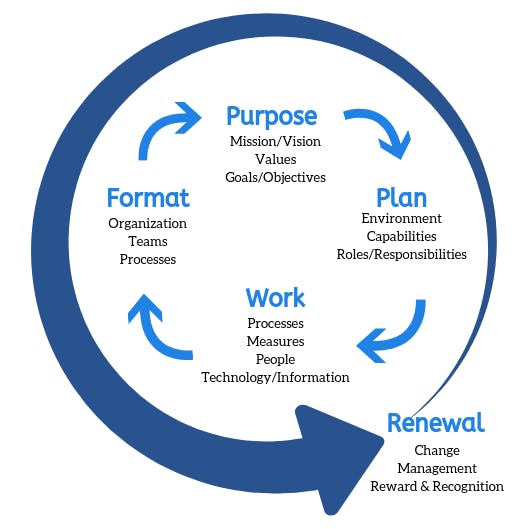You discover conflict in every type of organization, even during a crisis. And, great leaders show up in the midst of the crisis. As you steer your congregation or company during the current coronavirus, apply these principles to keep the ship moving in the right direction and to prevent listing that detracts from your impact.
No matter what group of people…a family, company, non-profit, church or community organization; conflict finds its way into it. Organizations that don’t deal well with conflict contain more disagreements than organizations who recognize discord, handle it and move forward with their mission.
As the leader of an organization (which includes an area within an organization), here are things to keep in mind to help you handle it well. When you handle it well, you solve the present problem. But, you also prevent other problems from emerging because people know you will deal with it.
Organizations face two primary kinds of conflict, interpersonal and organizational.
Here, we address organizational conflict.
Organizational Conflict happens when a person’s behavior or words violate the values of that particular organization. I say “that particular” because an acceptable action in one organization can cause conflict in another. In a crisis like the current one, a value we should all adopt is, “Stay the course, calmly.” This means you can apply these principles to someone in your organization who is playing Henny Penny (or some are more familiar with Chicken Little). People who shout, “The sky is falling,” will push your ship onto the rocks if you don’t take the initiative to keep it on course.
Another, typical example, in churches who value growth, is that bringing and involving new people causes celebration. In churches who do not value growth, bringing and involving new people causes conflict.
Remember: A value is not what people say they value. A real value (one that determines how people live, work and relate) shows in what people actually do.
Rich Halcombe
Too often what an organization says it values differs greatly from how people in that organization operate. For example, a church may say she values faith and hope. But if that same church frets and worries about the potential outcome of the coronavirus, they don’t value faith and hope. That group values fear and angst.
Another example would be a church who says she values new people coming and getting involved. But, that same church’s member requires a guest to move from the member’s “seat” (this has literally happened to me). A person might bump someone out of her seat before she reseats after a song (this has literally happened to my wife, with me standing beside her). Or, a member could suggest the guest visit other classes (again, personal example).
So, conflict does not mean the person commits a wrong action. Conflict occurs when a behavior goes against the values in that organization.
Interestingly enough, the first time the word “church” is used in the Bible (Matthew 16:18), conflict accompanies it. More specifically, the conflict erupted just after Jesus shared the Plan of how His mission would be fulfilled.

Jesus shares the Plan
From that time Jesus began to show His disciples that He must go to Jerusalem and suffer many things from the elders and chief priests and scribes, and be killed, and on the third day be raised. (Matthew 16:21)
Conflict Erupts
“And Peter took him aside and began to rebuke him, saying, “Far be it from you, Lord! This shall never happen to you.” (Matthew 16:22)
Notice Peter violated the values of this new organization, the church. He sought to prevent the implementation of the Plan. Peter created organizational conflict.
This is obviously not interpersonal conflict. How do we know that? Because Peter reacted to protect Jesus! Peter’s organizational conflict actually sought to protect another person.
Think about what your response would be when someone in your church takes a stand to protect you? For me, my first instinct would be to thank that person. I would appreciate the fact that he cared about me, loved me and tried to protect me from pain.
But, that’s not at all that Jesus did.
Jesus censured Peter. And, the way Jesus did it informs how we should address organizational conflict.
“But He turned and said to Peter, “Get behind me, Satan! You are a hindrance to me. For you are not setting your mind on the things of God, but on the things of man.” (Matthew 16:23)
Jesus responded:
Immediately.
“But He turned and said to Peter…” (Matthew 16:23) As soon as Jesus heard the violation of the organization’s value, He addressed it. For you as a leader, this lesson helps you avoid a lot of pain and angst. It also keeps the negativity from spreading. Failure to act against a values violation actually encourages other people to violate it.
Clearly
“For you are not setting your mind on the things of God, but on the things of man.” (Matthew 16:23)
No misunderstanding here. Jesus made clear to Peter that his words breached what the organization planned to do. The value Peter broke? “Set your mind on God’s things.” Peter valued the personal protection of Jesus more than the fulfillment of Jesus’ organizational mission, and Jesus let him know about it.
Directly
“And said to Peter…” (Matthew 16:23) Jesus didn’t call a public meeting. He did not insert a reprimand in a Sunday morning sermon and hope the offender figured it out. Jesus refrained from telling His friends to gain moral support. He didn’t send a letter or an email. He talked to Peter directly. As did Jesus, so do great leaders.
Discreetly
“And Peter took him aside…” (Matthew 16:22)
Jesus confronted Peter personally, out of earshot of others.
By Deliberately Moving the Obstacle Out of the Way
From front to back. From “in the way” to “out of the way”.
“Get behind me, Satan! You are a hindrance to me.” (Matthew 16:23)
Jesus told Peter he impeded the progress Jesus declared. The word “hindrance” also translates as “stumbling block” (NIV, NASB). Peter’s violation of the organization’s value got in the way. And, Jesus removed it. As the two talked, you can see them face-to-face, Peter in front of Jesus. Jesus not only confronted him, He told Peter to “get behind me.” Whereas the stumbling block encumbers fulfillment of the mission, Jesus removes the obstacle. As a leader, part of your job moves deterrents (to the mission) out of the way. You remove the obstacle even when the obstacle wants no harm to come to you. (As a side note, Jesus didn’t act based on Peter’s motives. Jesus reacted to Peter’s words. Key point here.)
How long do you wait to confront a problem? Do you let the obstacle stay in the way? Do you talk to others, instead of talking to the person involved? Are you seeking to relieve your own anxiety more than solving the problem?
Lastly, notice Jesus took personal responsibility for solving the conflict.
This snapshot from the ministry of Jesus shows Peter “sticking up” for Jesus. But Jesus reprimands him and say Peter is a hindrance/stumbling block “to me.” Jesus personally owned His mission to the extent that to seek to circumvent His plan also pushed against Him.
Do you deal with problems as they occur? Or, do you give others a pass if they seem to support you personally, even when they obstruct what you (and the organization) are doing?
In this blog, we see how to deal with Organizational Conflict. Next time, we see how to deal with Interpersonal Conflict.
Hint: Interpersonal Conflict shows up the second time the word “church” is used in the Bible.
To read more about Organizational Conflict, visit my previous post: Two Primary Kinds of Conflict in an Organization




